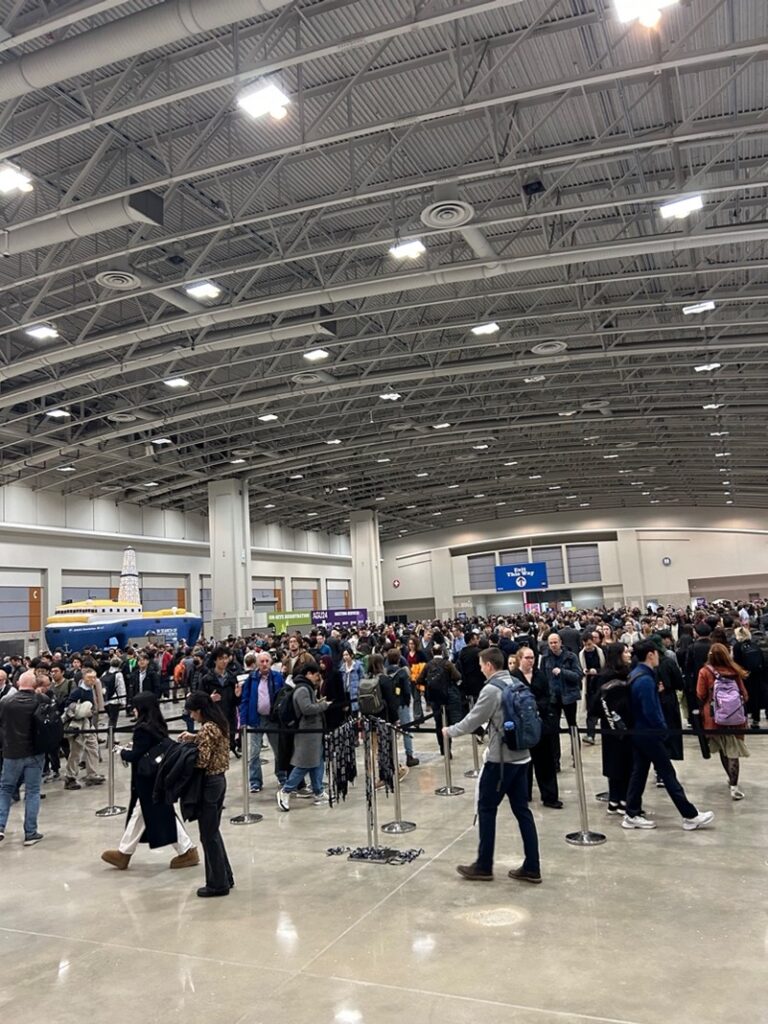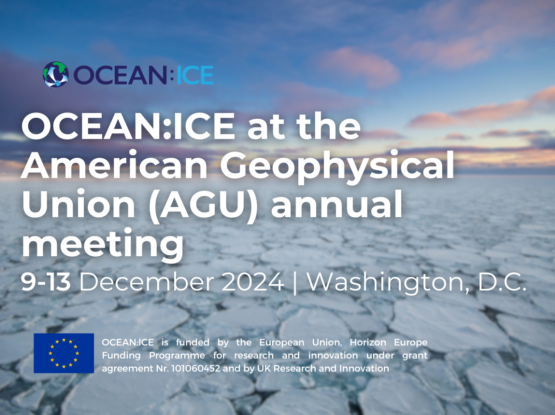The American Geophysical Union (AGU) is a vast organisation, and it promotes its annual meeting as being the largest gathering of earth and space scientists on the planet. Having attended several such meetings now, I’m still struck by how massive it is, and how it seems to keep growing - I’m told that in excess of 20,000 people attended this year. The venue for 2024 was the Washington Convention Centre, in the US capital. This gave chance to see some famous landmarks, in addition to participating in the science meeting, though the White House was mostly hidden behind the construction works ahead of this month’s inauguration.

The meeting covered all aspects of geophysics, space science, elements of biogeochemistry and relevant marine biology, geology, policy, governance, societal impacts, EDIA, and much more. Truly it was mind-boggling and sometimes exhausting. The huge number of parallel sessions inevitably led to persistent FOMO – but once you made your peace with that, there was a wealth of high-quality science discussion to soak up and enjoy.
Southern Ocean science was extremely well represented at the meeting, with numerous sessions and presentations relevant to OCEAN:ICE and many other major international programmes. I gave an invited talk in the excellent session “Antarctic Sea Ice and the Southern Ocean: Coupled Processes, Variability, and Change”, focussing on the role of glacial calving on ocean transformations and their impacts. Other strong sessions included “Ice-Ocean Interactions Along Antarctica's Continental Shelf”, “The Birth, Life, and Death of Icebergs: Sentinels of Change”, and “Artificial Intelligence and Machine Learning for the Cryosphere”.
A particular highlight for me was the detailed discussion with John Podesta, who served as lead US negotiator at the United Nations’ CoP climate meetings. He acknowledged the political changes occurring in his country and the challenges that they may bring for making progress in the fight against climate change. He also noted that the issue is far too important to give up on, and that there is no way we can revert to the energy system of the 1950s. This discussion being held in Washington seemed especially poignant.

As always happens at these meetings, many of the most beneficial interactions occurred in the margins, over coffee, or in and around the posters. Several detailed discussions gave new perspectives on the role of glacial ice in influencing ocean productivity, and also new ideas for how to diagnose and understand ocean mixing using acoustic techniques. Unpacking all the information and following up the new avenues of investigation will take time, but it will be exciting to see where it all leads.

The author of the article - Michael Meredith (British Antarctic Survey)


